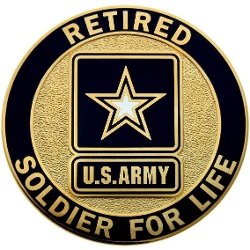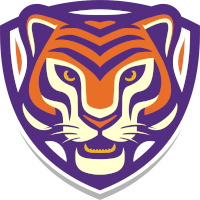|
Replies: 5
| visibility 2,081
|
All-TigerNet [12233]
TigerPulse: 100%
Posts: 5388
Joined: 9/12/04
|
Article worth a read from April's IPTAY magazine
May 5, 2020, 9:07 AM
|
|
I thought this IPTAY Magazine article written by former Clemson Rower Anna McLean regarding her journey rowing across the Atlantic ocean with her brother was worth a read:
IN JANUARY 2017, I approached the doors of the Clemson Rowing Boathouse and was quickly welcomed by the Tiger community as a member of the varsity rowing team. The sunrises, the weight sessions and the feeling of a personal best strengthened my love and competitiveness for rowing.
Rowing allows one's mind to escape, and I always wanted to stay on the water longer and row farther.
For Christmas, I received a book about Roz Savage, the first female to row across the Atlantic Ocean. After I finished her book, I knew I was next. My brother, also a former rower, had just swum from England to France. Naturally, I thought he must like the water and an adventure, so I asked him to be my crewmate. Without hesitation he said yes.
My brother and I, dubbed "The Seablings," completed the Talisker Whisky Atlantic Challenge, a 3,000-mile row across the Atlantic Ocean from the Canary Islands to Antigua in 43 days, 15 hours and 22 minutes. We now hold two world records as the first brother and sister to row an ocean and the fastest mixed pair.
Absolutely nothing can prepare you for what the Atlantic Ocean throws at you. It is known as "The World's Toughest Row,' and it was not until I was battling 40-foot waves and 27-knot winds in the pitch black and literally getting thrown out of my seat that I realized why. Within six hours of stepping foot onto our 24-foot rowboat ' Lily,' I was seasick. I could not eat or drink and had to sleep on deck because the motion of the waves in the cramped cabin made me sicker. It was totally incapacitating.
By day five, we had broken an oar, were having to manually steer and the tubes on our watermaker (which takes water from the sea and desalinates it) were about to burst every time we tried to make water. By day eight, our feet were raw and blistered with knees extremely sore from moving at an awkward angle for such a long time. On day 12, we received an update from family back home saying, 'You are in 28th position. Keep going, but, just so you know, some solo rowers are beating you." We both thought we had been rowing hard, but, in reality, we had just been rowing to survive, and it was time to start rowing to compete. We found our rhythm rowing two hours on and two hours off and made our changeovers as fast as possible to ensure maximum time on the oars.
More efficient rowing shifts meant less sleep. After I had washed and prepared a meal, eaten it, rehydrated and checked our route, the winds and the weather, it left barely 90 minutes to sleep. It requires discipline to do even the simplest of things such as brushing your teeth or drinking water.
Life on board Lily was simple yet challenging. We had no kitchen, no bathroom and no shower. Burning up to 10,000 calories a day, our food consisted of about 1,000 calories each. We intended to add boiling water to the packets but soon found it impossible to heat anything amidst the sloshing of waves and boat rocking from side to side, so we would instead add cold water and leave it out in the sun for a few hours to warm up. Our shower was the grey bucket, and our toilet was the orange.
The waves were big when they covered the horizon, but they were life-threatening when they covered the sky. It was like looking up at the top of Memorial Stadium. We would keep rowing, and, then, "BANG!" It would smack into the stern of the boat, and, for a few seconds, you would surf the wave holding on for dear life, praying you would not capsize. It was especially frightening at nighttime, when there was little to no moon and clouds covering the stars. It was like being on a roller-coaster, blindfolded, and the ride lasted over 12 hours.
By day 20, we had moved from 28th place to 24th. Having been stalked by a 14-foot shark earlier on in the race, we only got in the water when we really needed to. About eight times throughout the crossing, we had to scrape the barnacles off the bottom of the boat to prevent any drag. One of us would be on 'shark watch' while the other had the ice scraper and mask to do the duty as quickly as possible. I always preferred being the one in the water. Jumping off the boat into 4,000-meter deep of ocean was exhilarating.
Day 35, and we were closer to people in space than people on land. By this time, we had only really spoken to a few passing cargo ships over the radio, asking them to change their course as they were usually on track to collide. I looked into the distance and I could see the mast of a sailing yacht. My brother quickly got on the radio - it was Suntiki, the support yacht marshaling the race. Within one hour, the people on the yacht got close enough for us to see them, the first humans we had seen in over a month. Eventually, they got close enough that we could speak to them without the radio. They asked us how we were doing, if we were healthy and if all of our equipment was working, to which we answered yes.
Two days later, Cameron fell sick. A microscopic graze on his knee from bashing of oars became infected. It was red and swollen. Despite the crippling pain, he would be rowing as much as he could, even if it was arms only. The infection soon spread to his blood, and his temperature became very high. The race doctor prescribed antibiotics, and Cameron was confined to the cabin to rest and recover.
At this time, the two-hour shifts were not "mine" or "Cameron's." They were just shifts, and I was the only engine we had. Two hours eventually turned into 36, and before I knew it, I had rowed all day and night to eventually falling asleep on the oars and Cameron waking me up. We had drifted for four hours and the auto-steering was beeping 'off course." I was sleep-deprived, exhausted and hungry, but I had no choice but to keep rowing.
After this, we realized just how much we needed each other. Before Cameron got sick, we were having a great time. We laughed, sung at the top of our voices and created our own TV shows to keep ourselves entertained. Cameron eventually came back stronger than before. We continued to overtake crews one by one by rowing for nine hours a day together, taking only short breaks on the hour, and before we knew it, we were in the top 20.
The last 100 miles felt like the longest. On night 42, I looked off the bow and wondered why the sun was not fully setting. Eventually, we realized it was the light pollution from Antigua in the distance. Tears of joy filled my eyes amongst a sigh of relief and disbelief that we were 40 miles away from land.
Day 43, we were on the home stretch. We could see the outline of the Shirley Heights cliff. Each hour, the lights on the horizon became more prominent. Antigua and Barbuda Search and Rescue came to greet us one mile out. "You are home,' they said. Superyachts were beeping their horns upon our arrival. We crossed the finish line, and that was the moment I had conquered the Atlantic Ocean with my best friend . We shared a passionate hug and held the red flares above our heads as we said, "We did it!" A few moments later, we stepped onto land to see our parents, friends and family, who had all been supporting us throughout our entire journey.
It is human nature to be comfortable and to have everything as easy and accessible in our lives as possible. Now, as I look back on the voyage, I realize that the crossing went against all of that. The ocean is big, bold and brave, but so are we.
When a challenge presented itself on the ocean, there was nowhere to hide. In uncomfortable situations, we could not close our eyes and hope they would go away. We had to face them head-on. Being outside my comfort zone has developed my strength and courage to face life's toughest situations. I encourage anyone to face whatever you are shying away from. What seemed to be scary before is nothing to what you can achieve now, and the person you will become will be an entirely new, bold and brave you with even bigger goals than before.
There are pictures and a video of their accomplishment on their website: https://theseablings.com/
Never fear, the boat "Lily" had an appropriate Clemson Tiger paw installed...
|
|
|
|
 |
CU Guru [1786]
TigerPulse: 100%
Posts: 1111
Joined: 4/6/18
|
Re: Article worth a read from April's IPTAY magazine
May 5, 2020, 9:21 AM
|
|
Inspiring story! Don't think I would have the guts to try something like that.
|
|
|
|
|
 |
Orange Blooded [3961]
TigerPulse: 100%
Posts: 1566
Joined: 8/28/16
|
Re: Article worth a read from April's IPTAY magazine
May 5, 2020, 9:51 AM
|
|
Good read. Thanks for posting.
|
|
|
|
|
 |
110%er [6878]
TigerPulse: 100%
Posts: 6107
Joined: 5/22/16
|
Re: Article worth a read from April's IPTAY magazine
May 5, 2020, 10:46 AM
|
|
Wonderful article thanks for posting this. I can't imagine having that kind of strength and will power. So many amazing people in this world!!
|
|
|
|
|
 |
Legend [16472]
TigerPulse: 100%
Posts: 11652
Joined: 9/1/01
|
Good read indeed Tabby. Thanks for posting!***
May 5, 2020, 11:30 AM
|
|
|
|
|
|
|
 |
All-In [27367]
TigerPulse: 100%
Posts: 31821
Joined: 8/19/03
|
Re: Good read indeed Tabby. Thanks for posting!***
May 5, 2020, 12:22 PM
|
|
Great article in a great magazine, “Orange, the experience” is worth the price of admission to IPTAY.
Great article on Gene Corrigan by Tim Bourret also.
|
|
|
|
|
|
Replies: 5
| visibility 2,081
|
|
|



 to award
the award.
to award
the award.







